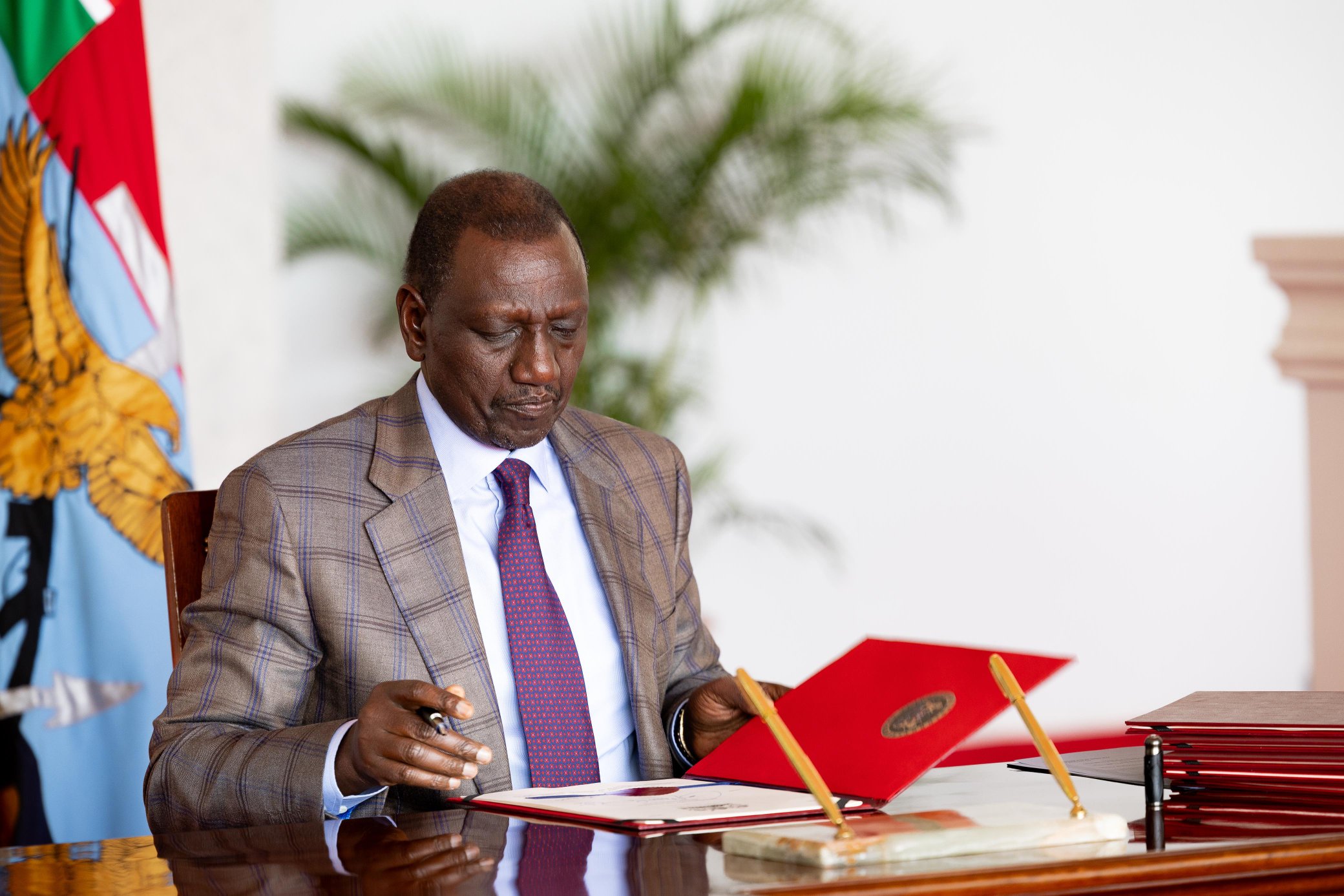When Newspapers Were Morning Prayers

Before the algorithm decided what we should believe, before timelines dictated the mood of the day, there was the rustle of newspaper pages thin, crisp, and scented with ink and authority. For many Africans, mornings once began not with notifications, but with the unfolding of printed truth. The newspaper wasn’t just a medium of information; it was a ritual, a symbol of intellect and civic belonging.
In Africa, the newspaper once commanded respect like scripture. Vendors shouted headlines like hymns, and readers clutched papers as if holding the world in their hands. In the cafés of the 1980s and 1990s, discussions about politics, football, and foreign affairs revolved around what was printed that morning. The Daily Times of Nigeria, The Nation, The East African, and Mail and Guardian were not just publications, they were institutions that shaped minds and mirrored nations.

Source: Unsplash
But those papers did more than report events; they built trust. In societies still recovering from colonial censorship and military regimes, the printed word symbolized liberation. It was proof that the people could speak, question, and document. Reading the newspaper each morning wasn’t simply an act of catching up, it was a quiet affirmation of citizenship. One headline could inspire protest; one editorial could spark reform. The press, then, was not just the fourth estate, it was the first light of public consciousness.
For many households, the newspaper was more than just information, it was inheritance. Fathers passed reading habits to sons, mothers folded articles to preserve recipes, obituaries, and success stories. In some towns, the arrival of a new issue felt like a community event. Newsstands became morning congregations, where strangers became friends through debate. The newspaper, in that sense, was Africa’s earliest form of social media, but slower, wiser, and rooted in real connection.
Today, that light flickers differently. In a world ruled by digital speed, print newspapers are fading into memory. News now travels faster than thought. A tweet breaks before dawn; by noon, it’s history. The credibility once tied to ink and paper has dissolved into pixels and posts. In this new era, where misinformation spreads faster than truth, we must ask, did we trade reliability for convenience?
Across Africa, the decline of print journalism mirrors a cultural shift. Newspaper sales have plummeted in countries like Nigeria and Kenya, as younger readers rely on platforms like X (formerly Twitter), Facebook, and TikTok for news. According to a 2024 Reuters Institute report, over 70% of Africans under 35 now get their information primarily from social media. Yet, as fast as this digital exchange is, it lacks the quiet authority the printed press once held. The morning ritual has become a scroll, the coffee replaced by a charging cord, the conversation by a comment section.
Ironically, what newspapers lacked in immediacy, they compensated for with credibility. A front-page story underwent layers of verification before it reached the reader. Journalists double-checked sources, editors held fierce arguments over ethics, and retractions were rare, because mistakes were a matter of institutional pride. In contrast, today’s digital ecosystem rewards speed over substance, turning “breaking news” into a race of who posts first, not who’s right.

Source: Unsplash
The loss is not just technological, it’s spiritual. The newspaper taught patience, reflection, and verification. You read it slowly, line by line, often sharing it with a friend or stranger on a bus. It was a community object. Today’s information, however, is consumed in isolation, ephemeral, aggressive, and often shallow. The public square has moved online, but the quality of discourse has not followed.
Yet, nostalgia alone cannot save print. The future demands reinvention. Some African media houses are experimenting with hybrid models, digital-first editions combined with collectible weekend prints. The Guardian Nigeria, Daily Maverick, and The Standard Kenya are finding new ways to keep legacy journalism alive, merging tradition with technology. The lesson here is not that the newspaper must die, but that its soul must evolve.
Still, we cannot overlook what was lost. The headline of yesterday carried weight. It was a shared truth, not a trending topic. The morning paper united generations parents reading aloud to children, elders debating editorials, workers gathering at newsstands. It built intellectual discipline, training readers to question, contextualize, and conclude. Without realizing it, it cultivated a reading culture that shaped an entire generation of thinkers, writers, and leaders.
Today, we scroll endlessly yet absorb less. The death of the morning paper represents more than a shift in medium, it reflects the erosion of collective reflection. Once, a single front page could define a nation’s mood; now, every phone screen hosts a fragmented version of reality. The journalist’s byline, once sacred, is drowned in the noise of anonymous opinion. The reader’s patience, once admirable, is now a luxury few can afford.
Still, there are signs of quiet rebellion. Across African cities, niche publishers and student journalists are reviving independent print culture, small magazines, literary papers, and community bulletins that reject the algorithm’s chaos. In Lagos, Cape Town, and Kigali, creative collectives are rediscovering the intimacy of print as an art form. They print fewer copies, but each one carries meaning, a tangible protest against disposable information.
But perhaps this isn’t the end, it’s a transition. The question is whether Africa’s media landscape will continue chasing clicks or rediscover the depth that once made newspapers sacred. The challenge for this generation of storytellers is to bring back meaning, not just speed; to restore truth, not just visibility. Because once upon a time, the morning newspaper didn’t just inform us, it grounded us.
But the world no longer waits for morning. Truth now travels at the speed of signal bars, and everyone with a phone has become both preacher and parishioner. The sacredness of slowness has been replaced by the chaos of constant updates. Still, amid the noise, the longing remains for something steady, something that reminds us who we are before the scroll begins.
Maybe the lesson isn’t to mourn the loss of print, but to recover its discipline. To remember that truth, like prayer, demands quiet. That before we repost, react, or rage, we must first read. Because once upon a time, the newspaper didn’t just tell us the news it told us how to listen.
You may also like...
Aces Dominate Mercury in WNBA Finals Game 3, Take Commanding 3-0 Series Lead Amidst Injury Drama

The Las Vegas Aces defeated the Phoenix Mercury 90-88 in a thrilling Game 3 of the WNBA Finals, taking a 3-0 series lead...
Hollywood Shakes: Warner Bros. and Paramount Merger Looms Large!

Warner Bros. Discovery is emerging as a top acquisition target, with David Ellison and Skydance in a strong position to ...
Unforgettable Performance: A New Wrestler Claims Best Actor Title!

Discover how WWE Hall of Famer Roddy Piper's authentic performance in John Carpenter's 1988 cult classic, <i>They Live</...
KISS Icon Gene Simmons Hospitalized After Shocking Car Crash

Legendary KISS bassist Gene Simmons was hospitalized after a car crash in Malibu but is now recovering at home and back ...
Kate Middleton's Pivotal New Personal Essay Reveals Significant Announcement

Kate Middleton warns of an "epidemic of disconnection" caused by excessive screen time, disrupting family life and foste...
Primark's £24 'Bloat-Friendly' Trousers Become Viral Sensation for Holiday Parties

Primark has once again captivated fashion lovers with its new viral Wide Leg Satin Trousers and an impressive dupe for h...
Wedding Day Nightmare: Officiant's Bizarre Bra and Dress Ruin Bride's Photos

A bride's intimate wedding photos were reportedly 'ruined' by her officiant's bizarre and unprofessional outfit: an ocea...
Ethiopia's Rail Revolution: New Italian Partnership to Transform East African Travel

Ethiopian Railways Corporation (ERC) has signed a framework agreement with COIPA Italia to modernize its railway network...




